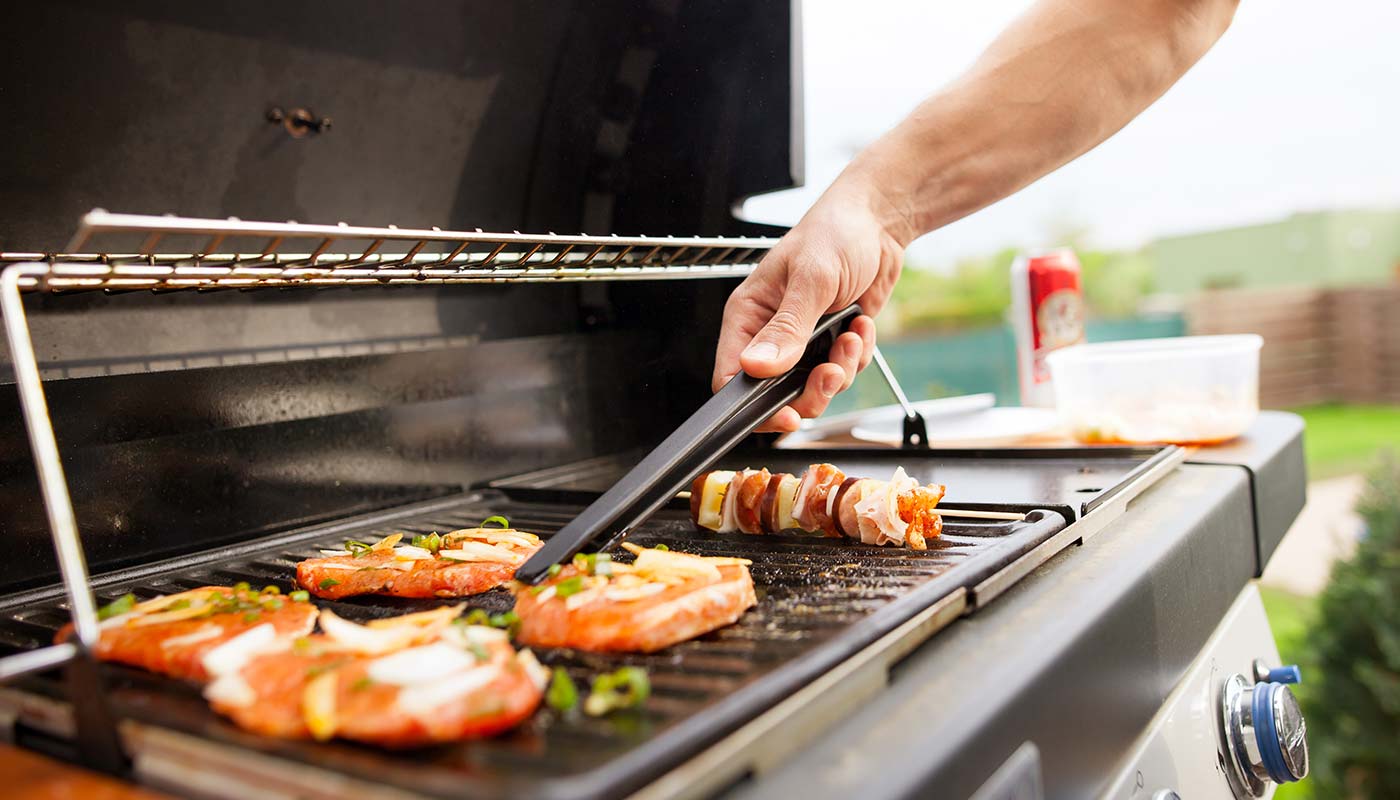Not all things are only American. Humans all over the world have been grilling and barbecuing for millions of years, regardless of the occasion (or even without). While they continue the tradition today, many Americans love to pair it with a pulled pork sandwich, mac and cheese, or creamy potato salad.
According to statistics, 75% of Americans own an outdoor grill or smoker, and about 61% said they use a gas grill. Unfortunately, the National Fire Protection Association (NFPA) recorded an average of 10,600 home fires per year due to grills. According to their data, 84% were due to gas grills.

Avoid ruining your barbecue time with your loved ones by following these safety guidelines:
1. Clean the Drip Pan
A grease fire can occur when the drip pan under your cooling grids and burners becomes full, and heat reaches ignition temperature.
Depending on the design of your gas grill, the drip pan is located outside the firebox, which can help contain a grease fire. However, drip pans are removable and should be checked and cleaned regularly.
- Slide the drip pan out when the grill is not in use and cool.
- Scrape off all dried debris and grease.
- Soak and rinse the drip pan in warm water. You can use soap and a sponge for tough stains.
- Dry your drill pan with a dry cloth and place it back in the grill.
- Look for the removable drip tray at the back of your grill, and replace it when it’s full since they’re disposable.
2. Check Your Grill for Any Leaks
Though people now can grill during the colder months, most store their equipment in winter and bring it out when grilling season begins. Before grilling, check the gas lines for any leaks since this can cause propane or natural gas to build up inside the barbecue when the lid is closed. In addition, always open the lid of your grill before lighting.
3. Place Your Grill Away from Your Home
Some homeowners place their barbecue grills just outside their back door. Avoid doing this because grills too close to your house or wood structures can heat nearby materials, causing a fire. In general, place your grill at least 10 feet away from your home, trees, or other structures.
But if this is impossible to do, like when it’s raining, make sure that the area is well ventilated, and the grill has a safe distance from combustible materials. Remove accumulated leaves and other items in the grill area.
4. Always Supervise When Grilling
It is not wise to leave your barbecue unattended. If children or pets come into contact with the hot grill, it can cause injuries. Also, barbecues use high heat and open flames for cooking meat and other food, which can become dangerous when unsupervised. If you have to walk away for a while, ask another adult to watch it for you.
5. Keep the Lid Open
In addition to getting crispier meat, keeping your lid open when grilling fatty foods allows you to manage flare-ups that can cause serious injuries. Or better yet, trim any excess fat before cooking.
6. Keep a Spray Bottle Nearby
When fat drips from meat when cooking, your grill can flare up and continue until the piece of food burns away. If left unattended, this continues and can make excess smoke mass under the lid. Always keep a spray bottle on hand when grilling so you can quickly extinguish small flames before they spread.
7. If Possible, Have a Fire Extinguisher Close By
If you can, keep a fire extinguisher close by when having a barbecue. Since you’re doing it outside your house, there will be no fire alarm to warn you. If you don’t have a fire extinguisher, keep a bucket of water or sand nearby instead.
In case a fire occurs, follow these home fire safety checklists.
8. Consider Using Charcoal
Gas grills are a convenient and fast way to grill outdoors. But you may be safer with charcoal, especially if you can’t keep a safe distance from trees or structures.